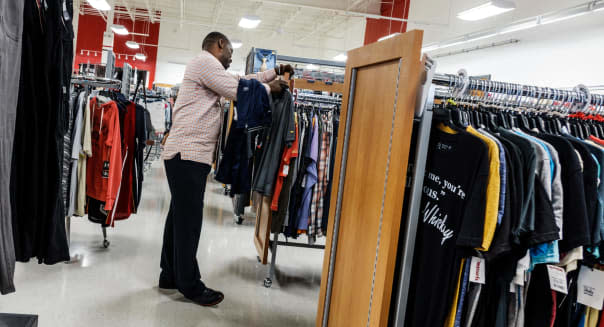Are Kohl's and T.J. Maxx Being Honest About Pricing?

Consumers flock to Kohl's (KSS) and TJX's (TJX) T.J. Maxx, expecting deep markdowns on apparel and other department store staples. They may not be getting the bargains that they think they're getting.
Both retailers are being sued in different lawsuits, alleging that the discounts being promoted on price tags are deceptive. Anyone shopping at Kohl's or T.J. Maxx knows the drill. Items appear to be on sale, referring to higher original or "compare at" prices. It helps justify or validate the purchase, and the argument here is that publishing these higher prices works on the psychology of the shopper. A fashionable $30 spring dress may seem like a good deal, but when the price tag claims that it's selling elsewhere for $50, it may seem outright irresistible at a 40 percent discount.
It's not right, and now legal fisticuffs are flying.
Mad Maxx
The first federal class action lawsuit was filed on July 17 in California. A pair of shoppers filed the suit, claiming that placing dubious "compare at" prices constitutes deceptive advertising. The lawsuit is specifically trying to compensate shoppers from California who have made purchases at T.J. Maxx over the past four years, but if it sticks, you know that more will follow.
%VIRTUAL-WSSCourseInline-884%T.J. Maxx explains on its website that the "compare at" price promoted on its price tag is based on its "buying staff's estimate of the regular, retail price at which a comparable item in finer catalogs, specialty or department stores may have been sold."
It then goes on to clarify that it buys products from thousands of vendors, so the actual item being sold may not be offered by other retailers at the "compare at" price that it's broadcasting. It then encourages customers to do their own comparison shopping as another way to see the "great value" that it's offering.
However, if customers are buying a pair of cargo shorts for $22 on the premise of a "compare at" price of $33 when there's no one really selling the same item at $33, is the 33 percent discount real?
Lumps of Kohl's
Four days after the class action lawsuit was filed against T.J. Maxx, a somewhat similar claim was made against Kohl's. Two different California shoppers kicked off the fireworks at the popular department store chain, voicing concerns that it, too, is inflating the value of its bargains.
This is a particularly thorny issue at Kohl's. The allegations claim that price tags offering higher "original" or "regular" prices on its own brands -- including Croft & Barrow and Apt. 9 -- are disingenuous if they were never offered at those higher prices. They are in-house brands, so it's not as if they are being sold elsewhere.
It's easy to shake our heads when folks initiate class action lawsuits, but there is some meat to these allegations. We'll see how it plays out, and ultimately T.J. Maxx and Kohl's may have to change their labeling practices. A good deal is still a good deal, and hopefully consumers will see it that way without having to be swayed by potentially dubious "original" or "compare at" pricing.
Motley Fool contributor Rick Munarriz has no position in any stocks mentioned. The Motley Fool has no position in any of the stocks mentioned. Try any of our Foolish newsletter services free for 30 days. Check out The Motley Fool's one great stock to buy for 2015 and beyond.

